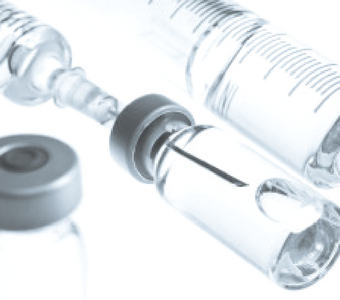The Bears may focus on the pushes and pulls around Questcor Pharmaceuticals’ (QCOR) 4Q 2012 earnings results, but the bottom line is, the earnings results were strong, and most importantly, sales of Acthar Gel continue to grow. The company delivered revenue and EPS for the period of $160.5M and $1.03, trouncing the Wall St. Consensus estimates of $143M and $0.90, respectively. Even after adjusting for additional product shipments in 4Q (360 additional vials, or 5.7% of total Acthar vials shipped in the period), revenues for the period would have come in at $151.3M, still significantly above expectations. Also key is that on a sequential basis (4Q12 vs. 3Q12), sales and earnings also grew nicely. For reference, QCOR reported revenues and EPS of $140.3M and $0.97 last quarter, respectively, also beating estimates by a wide margin. These metrics, plus a 25% increase in Questcor’s quarterly dividend, clearly demonstrate that the Bear thesis – that health insurance companies are not going to reimburse Acthar Gel in a meaningful way – is simply wrong.
While the earnings call did feature management softening its view on its 1Q 2013 outlook due to the extra vials shipped in 4Q and a new reimbursement center for Acthar Gel coming on line, we believe the company is setting up for another quarter where it can handily beat estimates. In PropThink’s article published after QCOR reported 3Q 2012 results, we valued QCOR assuming no forward growth, and saw the financial metrics justifying the stock up to the high-$30/low-$40 per share range. With visible growth in the 4Q 2012 results, newer indications like rheumatology (polymyositis and dermatomyositis, PM/DM) and nephrotic syndrome (NS) gaining further traction, and health insurance companies continuing to reimburse Acthar Gel as they have in the past, one could argue that QCOR can trade into the mid- $40 range based on the current level of sales, still assuming no additional growth. For instance, at $45 a share, QCOR, based on the revenue run-rate in 4Q, would trade at only 4.2x sales, a moderate multiple for a company with 94% gross profit margins. Factor in any growth, which the company continues to deliver, and the stock could trade higher. On that note, QCOR announced along with its 4Q results that it has raised its quarterly dividend by 25%, suggesting that management expects to continue seeing growth.
Questcor shipped 6,330 vials of Acthar in 4Q12, up 88% compared to the 3,360 vials shipped in the 4Q of 2011, and 13% compared to 5,590 in 3Q12. The company reported 20,741 vials of Acthar shipped in the full 2012 year, a 94% increase over 2011. Identifying specific sales trends, COO Steve Cartt noted, “While Acthar net sales in MS posted greater than 40% year-over-year growth, MS prescriptions softened by approximately 8% from the third quarter, after almost five years of sequential quarterly growth, and nephrotic syndrome became the largest contributor to net sales.” Interestingly, the quarterly drop in MS Acthar sales can be in-part attributed to a decline in MS flare-ups associated with colder weather; it’s common knowledge that hot weather, or heat in general, can exacerbate MS symptoms. Nevertheless, we believe that nephrotic syndrome and the rheumatology indications, PM/DM, are the real growth engines for Acthar. During 2Q12, the company finished expanding its Nephrology sales force from 28 to 58 representatives, and in the last quarter grew its pilot rheumatology team from 12 to 55 representatives. Those aren’t incremental increases; they’re significant additions to what Questcor expects will be important growth segments for Acthar, and both indications provide advantageous economics. Acthar is priced at $25K per vial, and a standard course of treatment for an MS flare requires just 1.5 Acthar vials ($37.5K). Nephrotic Syndrome, on the other hand, requires 7-8 Acthar vials per course, bringing in approximately $200K for Questcor, while a course of treatment for PM/DM requires 5 vials, or $125K. It’s also worth noting that infantile spasms treatment requires 5 Acthar vials, thus, MS is the least beneficial indication economically for Questcor. The reasons for and implications of rheumatology and nephrotic expansion are obvious.
Yes, QCOR’s 4Q results had a couple of details that weren’t perfect, but cutting through the noise, the long-term Acthar stability and growth story remains very much intact. As the Bears argue the smaller details in the quarter, we note that this supports that the negative big-picture story – health insurers not reimbursing Acthar Gel – has faded into the background. Expect shares of QCOR to power through any negative pressure exerted on the stock related to the minor negative details in the 4Q report, as the long-term cash flow and growth story rise to the top of analysts’ and investors’ conclusion and support higher price movement in the shares.
In connection with QCOR, PropThink has taken a long position.



